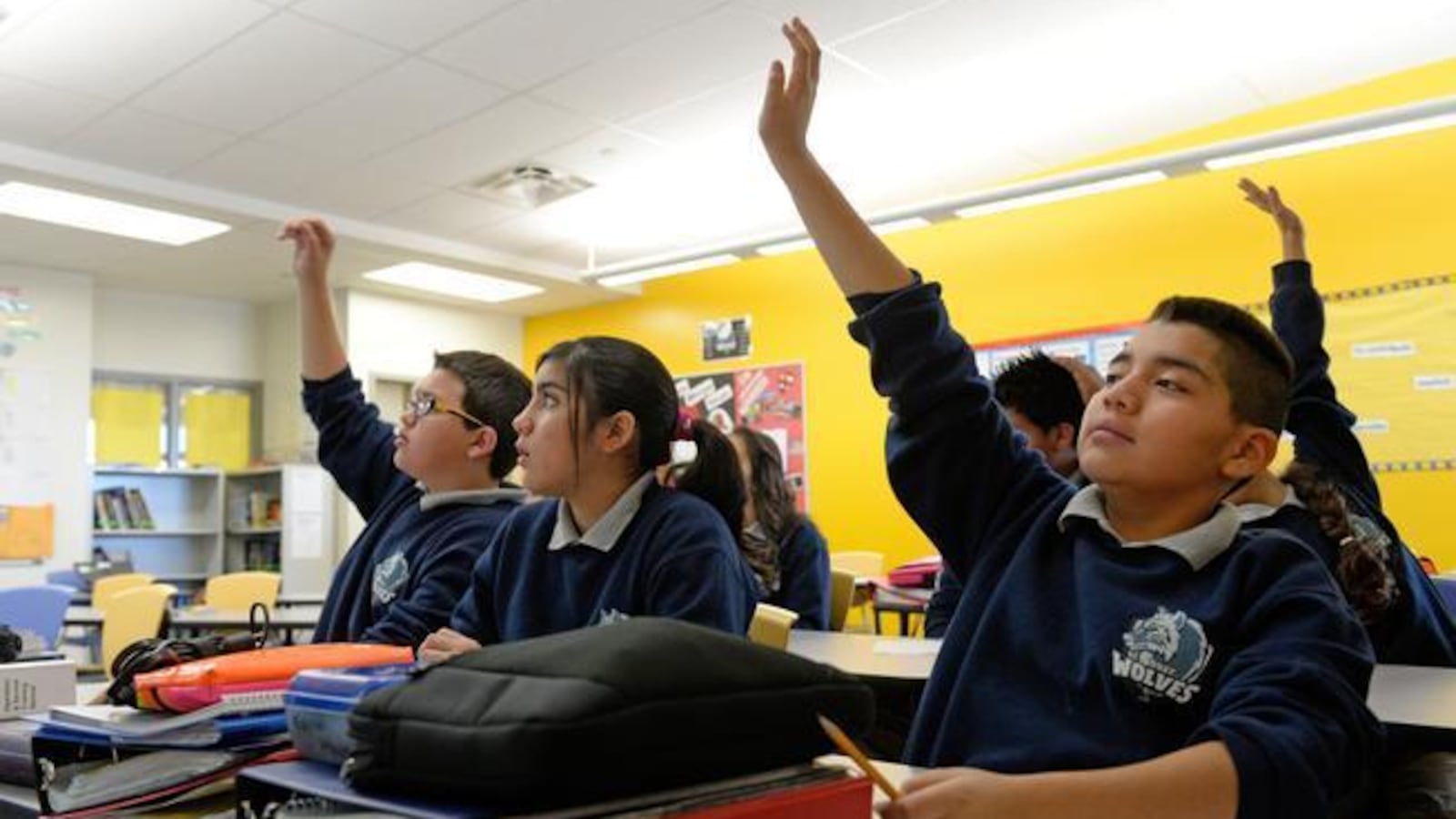Denver-based DSST Public Schools has been named one of three finalists for a prestigious national prize recognizing large charter school networks with records of high academic achievement, especially with low-income students and students of color.
The $250,000 Broad Prize for Public Charter Schools is presented by the the Eli and Edythe Broad Foundation and the National Alliance for Public Charter Schools. Winners will be announced June 12 at the National Charter Schools Conference in Washington, D.C. The other finalists are New York-based Success Academy and Harmony Public Schools in Texas.
This is the first year DSST has been large enough to be considered for the award, organizers said.
DSST is an integral piece of Denver Public Schools’ nationally known “portfolio model” that gives families choices among traditional district-run, charter, magnet and innovation schools, which get many of the freedoms afforded to charters.
DSST is also in major expansion mode. By 2024-25, the network plans to have 22 schools in Denver enrolling as many as a quarter of the city’s secondary school students. The network is also seeking to open two new schools in neighboring Aurora Public Schools, which would be its first schools outside Denver.
DSST seeks to build integrated schools — a mission DPS is now investing more energy in — and offers a liberal arts education with a strong science and technology focus. For 10 straight years, 100 percent of DSST graduates have been accepted to a four-year college, school officials say.
Among DSST’s academic accolades spotlighted in Monday’s announcement of the Broad Prize finalists:
DSST operates 12 secondary charter schools that serve nearly 5,000 students in Denver, 69% of whom are low income and 75% of whom are students of color. DSST runs four of the five top Denver Public Schools (DPS) high schools, and five out of the top eight DPS middle schools, according to Denver’s 2016 School Performance Framework. At DSST, all students take the ACT and the average score for their 2016 seniors was 23.3, which far exceeds the ACT college readiness benchmark of 21.3, Colorado’s average of 20.4, and DPS’s average of 18.6.
Critics of DSST and similar high-performing charter schools contend their student populations are not representative because they attract more engaged families, that support from deep-pocketed philanthropic backers gives them an unfair advantage, and that school leaders overemphasize test preparation and performance, among other claims.

